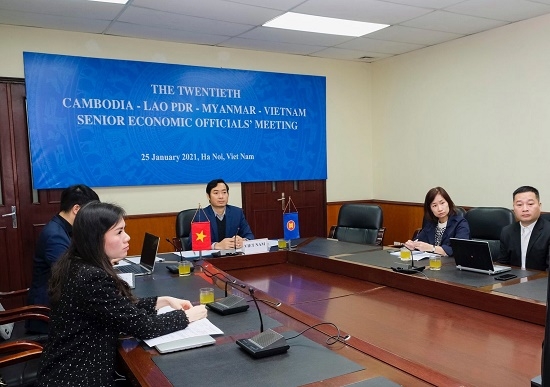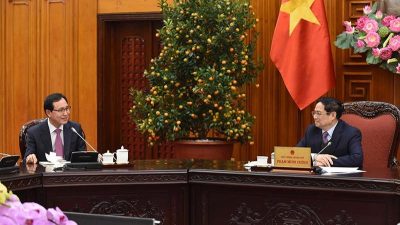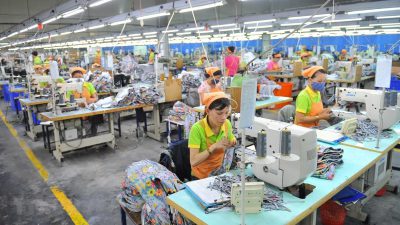
|
The 20th Cambodia-Laos-Myanmar-Vietnam Senior Economic Officials’ Meeting (CLMV SEOM) was held on January 25 via video conference, during which Vietnam suggested countries study and select the form of implementing projects suitable to the “new normal” in each country when compiling the CLMV Action Plan for 2021-2022. |
|
Deputy head of the Asian-African Markets Department at the Ministry of Industry and Trade, Nguyen Phuc Nam, who is head of the Vietnamese delegation, stressed the need to intensify the application of digital technology as well as the organisation of activities in the online format, while creating favourable conditions for experts, technicians, and project officials from development partners to carry out entry procedures, take COVID-19 tests, and undergo quarantine. It is also important for CLMV to propose more cooperative projects to benefit all four countries and support post-pandemic recovery efforts, especially projects facilitating trade and investment, improving regional connectivity, supporting micro-, small- and medium-sized enterprises in accessing finance and technology, and increasing their capacity. Regarding the building of a detailed action plan to implement the CLMV Development Framework approved at the 10th CLMV Summit last December, Nam suggested the countries step up coordination to identify feasible activities and projects to be included in the action plan. The CLMV SEOM 20 reviewed the implementation of activities in the 2019-2020 CLMV Action Plan, discussed the plan for 2021-2021, reviewed the implementation of the Promotion of Competitiveness within the Framework of the Initiative for ASEAN Integration (COMPETE) project, and discussed the next steps in carrying out the CLMV Development Framework. Many activities and projects in the 2019-2020 action plan were postponed or cancelled last year due to COVID-19. Thanks to its activeness, however, Vietnam carried out several planned trade and investment cooperation activities. The country proactively proposed organising online meetings, trade fairs, and training courses, facilitating trade and investment activities and services, particularly those through CLMV borders, restricting and removing unnecessary trade barriers, and ensuring the operation of supply chains. Source: Nhan Dan Online |


